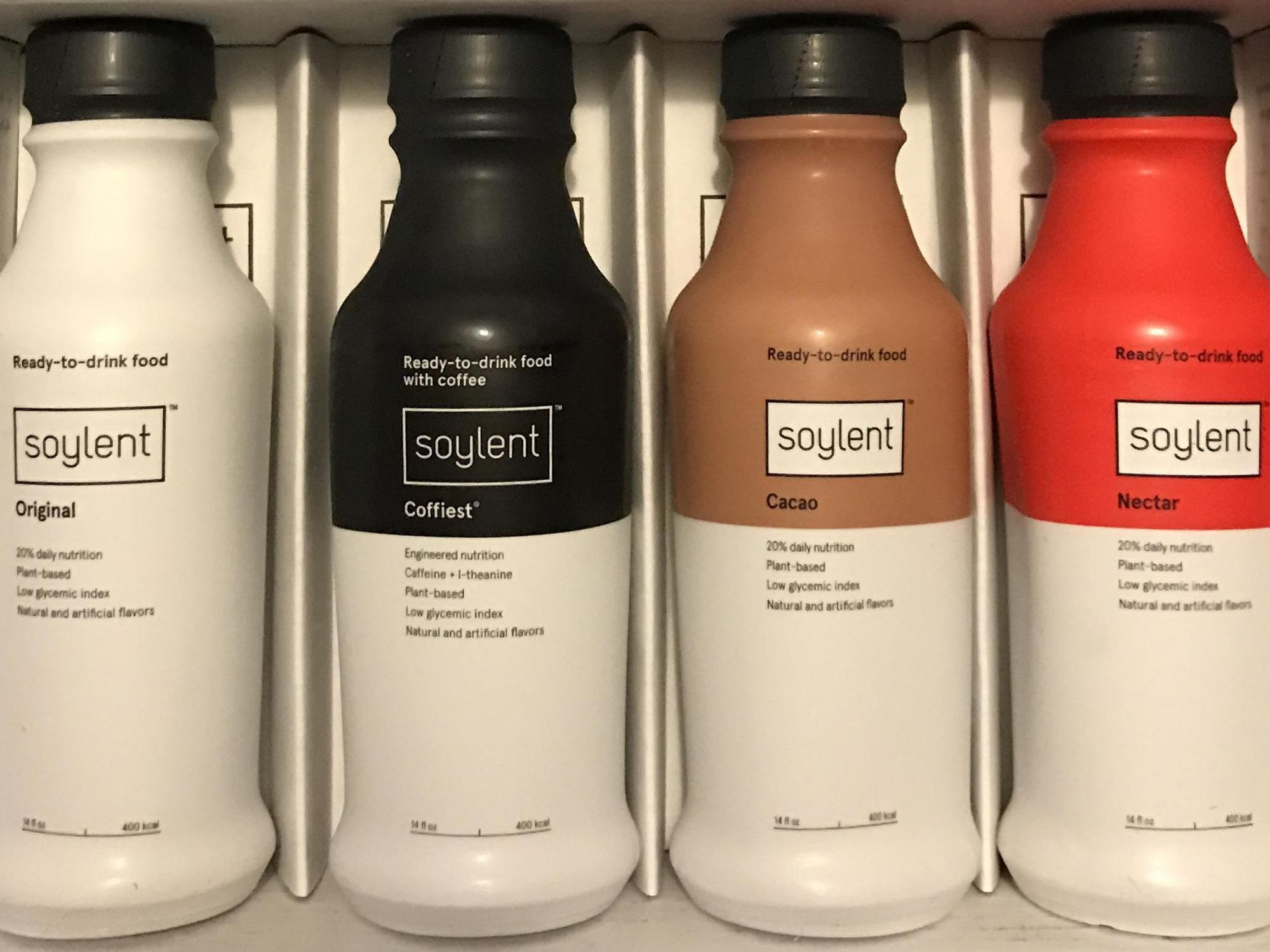Soylent Abandons Food Disruption as Its Brand
David Shultz reports on clean technology and electric vehicles, among other industries, for dot.LA. His writing has appeared in The Atlantic, Outside, Nautilus and many other publications.

Soylent wants you to know it's not the same dystopian tech bro food liquid that it used to be. With a new strategy and an updated formula, the Downtown L.A.-based nutrition tech company is no longer billing itself as the only thing you'll ever need to eat again… although CEO Demir Vangelov says a 100% Soylent diet is still possible, just not recommended.
"We've shifted from being a meal replacement company to a complete nutrition company," says Vangelov.
Unlike the company's original CEO Rob Rhinehart, Vangelov brings food industry experience to the business. Before joining Soylent as chief operating officer and chief financial officer in 2018, he was the CFO and COO at Califia Farms, a plant-based milk company also based in California.
As Soylent has matured—and especially since he became CEO in 2020—the 20-person company has sought to distance itself from its Silicon Valley roots. Soylent's goal is not to "disrupt" nutrition, but to supplement it.
This pivot has also come with financial gains. The eight-year old company turned a profit for the first time in years in 2020, thanks to a new formulation, new flavors and a continued focus of premixed, bottled products available in retail locations rather than the traditional mail-order powder the company launched with. The premixed protein drinks are sold at Walmarts and in drug stores like Walgreens, Rite-Aid and, most recently, CVS.
That level of distribution, Vangelov says, has made Soylent into the largest provider of plant-based protein beverages in grocery stores in the U.S.
To long-time Soylent followers, this move to prepackaged, flavored drinks may seem to be a stark departure from the original business model. The company began as mail-ordered powdered formulation that Rhinehart, a Silicon Valley computer engineer dreamt up in response to his busy lifestyle and the high cost of eating well.
The new iteration comes in eight flavors, including, café chai, banana and "original." (Full disclosure: I ate plenty of "original" flavored Soylent back in 2016 and 2017. It was paste-y, rich, and sort of nutty. It tasted like what it was: Something that was filling, probably not bad for me, and designed by people who seemed to hate food and eating.)
As easy as it is to make fun of Soylent, it's got a lot of things going for it. It's vegan. It's gluten free. It contains 100% of all the nutrients, vitamins, and minerals a human being needs. It's a liquid, which is convenient for people who can't chew or don't like to chew. It requires essentially no culinary skills to prepare. It's even cheap—as low as $1.50 per meal in its original powdered formulation.
Jane Burrell, a dietician and professor at Syracuse University, says there are other considerations to make when weighing a cuisine. "It does have a lot of nutrients in it, but it's not a very satisfying and fulfilling way to eat," she said.
"We think about eating as really nourishing your body in terms of the nutrients you need, but it also makes you feel good and gives you a connection with people. It's the context of eating and thinking about your culture and all those things that make you a person. That means eating food that has textures and flavors and smells and brings back memories and feelings."
Of course, not every meal needs to be a culinary experience either. There are plenty of use cases where Burrell says Soylent makes sense. People are actually busy and healthy food often takes time to prepare. If having a Soylent drink keeps you out of the drive-thru line, great, says Burrell.
There's also something to be said for how the drink can help consumers gain or lose weight thanks to how precisely it's formulated. There's no guessing about calories or portions. If you eat a scoop, you know exactly what you're getting.
The company has had success in hospitals, where doctors have used Soylent with patients who are having trouble eating for one reason or another.
"We did a scientific study at UCLA with the throat and neck cancer department. They were extremely happy with the performance," says Vangelov. "The takeaway was that this was the best performing nutrition that they'd seen."
With a freshly-inked deal with CVS and existing distribution channels at Walgreens, Rite-Aid, Target and Wal-mart, the business is transitioning from the first food tech company into the largest provider of plant-based protein beverages in grocery stores in the U.S.
Is it soulless? Maybe, but who cares? It's healthier than the average American diet and better for the planet. It's not going to become the only food anybody eats, and it doesn't want to. Soylent is finally becoming what it has always been: bland.
- Panic Buying is Bringing Soylent a New Kind of Customer - dot.LA ›
- On The Go LA Aims to Boost Local Food Truck Vendors - dot.LA ›
- Daring Foods Raises $40 Million to Produce Faux Chicken - dot.LA ›
- Wellness Brand Moon Juice Is Raising $7 Million - dot.LA ›
- Flying Embers Raises $20 Million As It Goes National - dot.LA ›
- Beverage Startups Are Using NFTs to Build Their Brands - dot.LA ›
David Shultz reports on clean technology and electric vehicles, among other industries, for dot.LA. His writing has appeared in The Atlantic, Outside, Nautilus and many other publications.





 Image Source: Tinder
Image Source: Tinder Image Source: Apple
Image Source: Apple